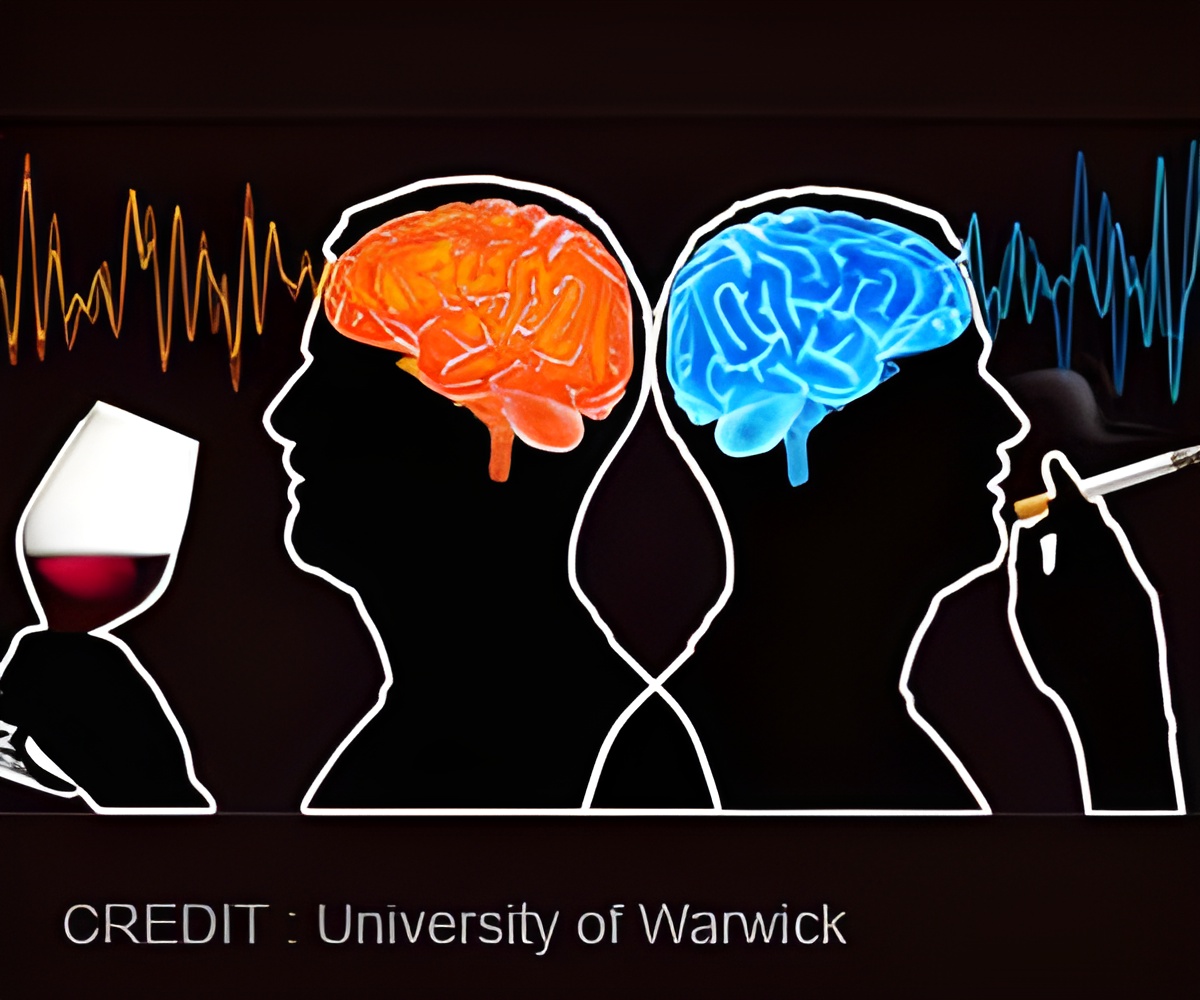Drinking alcohol Excessively from an early age can have an impact on your emotion controlling area of the brain, finds a new study.

‘The epigenetic changes that occurred in the amygdala of early-onset drinkers can alter the normal function of the amygdala, which in general regulates our emotions, which cause make people more susceptible to emotional problems.’





Now, researchers at the University of Illinois at Chicago Center for Alcohol Research in Epigenetics have shown that some of these lasting changes are the result of epigenetic changes that alter the expression of a protein crucial for the formation and maintenance of neural connections in the amygdala -- the part of the brain involved in emotion, fear and anxiety. Their results, which are based on the analysis of postmortem human brain tissue, are published in the journal Translational Psychiatry.
Epigenetics refers to chemical changes to DNA, RNA or specific proteins associated with chromosomes that change the activity of genes without changing the genes themselves.
Epigenetic modifications are involved in the healthy development of the brain, but they can be influenced by environmental or even social factors, such as alcohol and stress. These kinds of epigenetic alterations have been linked to changes in behavior and disease.
The researchers looked at postmortem human amygdala tissue obtained from the New South Wales Brain Tissue Resource Center in Sydney, Australia.
Advertisement
The average age of death of the individuals from whom the samples were taken was 58 years old for those without alcohol use disorder; 55 years old for early-onset drinkers; and 59 for late-onset alcoholics.
Advertisement
When there is more BDNF-AS, there is less BDNF. The brain tissue of early-onset drinkers had 30 percent to 40 percent less BDNF compared with brain tissue from people with no history of alcohol use disorder.
This reduction in BDNF was not seen in brain samples from late-onset drinkers or from people with no alcohol use disorder.
Subhash Pandey, professor of psychiatry and director of the UIC Center for Alcohol Research in Epigenetics, and corresponding author on the paper believes that epigenetic changes to BDNF-AS are the reason BDNF is lower in the amygdalae from people who started drinking early in life. In the amygdala from people who began drinking after age 21, there were no such changes.
"BDNF is needed for normal development in the brain and for connections to form between neurons," said Pandey, who is also a senior research career scientist at Jesse Brown VA Medical Center, Chicago. "If levels are lowered due to alcohol exposure, then the brain will not develop normally, and we see that in these brain samples where there are abnormalities in another synaptic gene, Arc, possibly making abnormal connections between neurons."
Pandey and his colleagues found that the increase in BDNF-AS in the early-onset drinkers is caused by decreased methylation of BDNF-AS. Methylation is a type of epigenetic change where a molecule containing a methyl group is added to another molecule and results in a change in genetic expression. The decreased methylation of BDNF-AS is believed to be caused by early-onset drinking and appears to be a long-lasting change.
"The epigenetic changes we saw in the amygdala of early-onset drinkers can alter the normal function of the amygdala, which helps regulate our emotions, and may cause individuals to be more susceptible for things like anxiety, which we have shown in other studies or the development and maintenance of alcohol use disorder later in life," Pandey said.
Source-Eurekalert















